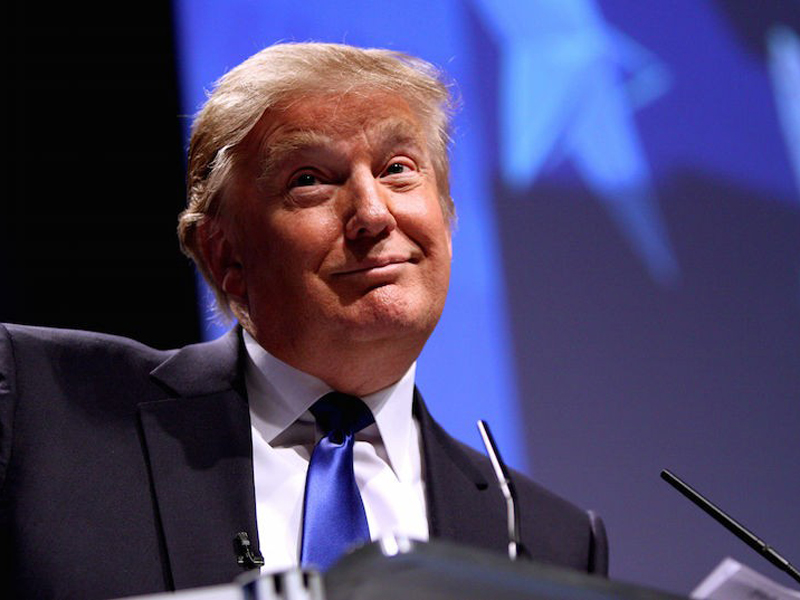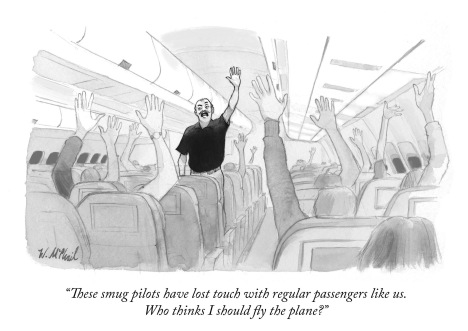Does Trump signal a new era of scepticism towards medical expertise and science in general, asks Edwin Kruys
Has the election of Donald Trump signalled a new era?
Expert advice and scientific evidence seem to be taking a backseat while populism and an anti-elite ethos are gaining momentum. In Australia this may further fuel non-scientific opinions and scepticism towards medical expertise and science in general. Trumpism is, of course, not new. Australia has had its fair share of health policy based on little or no evidence.
Throughout history experts and scientific evidence have often been viewed with suspicion. The election of Donald Trump is a case in point. “Donald Trump’s lack of respect for science is alarming,” said the Scientific American.
Indeed, Trump is doing nobody a favour by, for example, spreading the incorrect and unproven message that vaccines cause autism. Apparently 70% of Trump voters believe this is true, despite the existence of extensive scientific safety data demystifying the dangerous misperception.
In Australia, there are also signs that medical expertise is undervalued. The funding withdrawal for several primary care research initiatives are illustrative of the common perception about objective sources of information.
A classic case of dismissing medical expertise is the My Health Record (formerly PCEHR). The first big cracks in this government project started to appear in 2013, when the medical leads decided to resign en masse. More recently we have seen similar issues with the Medical Home project, which had full support from the profession until it was radically changed.
Then there are the changes to legislation around medical cannabis, which have created a perception of easy access for patients. Although there are plenty of anecdotal reports from people who have experienced symptomatic relief with cannabis for a range of conditions, doctors are still waiting for the research to provide information on indications, efficacy, safety and quality of cannabis products.
Vested interests
“Most people are happier with experts whose conclusions fit their own ideas,” write Clarke & Lawler in The Conversation. “But the Australian suspicion of authority extends to experts, and this public cynicism can be manipulated to shift the tone and direction of debates.”
When trying to inform government policy, experts are up against lobbyists who often represent large corporate commercial interests. An example is the campaign by some of the large corporate after-hours home visit services which seem to be mainly concerned about their profitability.
I’ve received reports from these services (who mostly employ non-GPs) delivering repeat prescriptions after hours – which is, of course ,inappropriate use of tax-funded health services and is concerning, especially as Medicare funds are scarce at the moment.
The facts are clear: since the bulk-billing National Home Doctor Service in the ACT arrived, home visits rose from 1588 in 2013-14 to 20,556 in the last financial year. This trend is happening at a national scale and there is no reasonable explanation for the explosion in urgent home visits.
What we need is an ethical and efficient after-hours service that works seamlessly with day-time medical services.
Another example where profit comes first is Pathology Australia, representing several big corporates, who transformed their public “don’t kill bulk bill” to a backdoor deal with the government to reduce the rent they pay to family practices for co-locating profitable pathology collection rooms.
Vested-interest campaigns have eroded confidence in experts and scientific evidence for a long time – and not just in the health industry (see video below).
Replacing experts
Other trends seem to indicate that experts are regarded as expendable and should be replaced by others – because it is deemed cheaper or more efficient. Examples are physiotherapists prescribing opiates in emergency departments, radiographers reporting on scans and non-medical staff performing gastroscopies.
There are situations where tasks can be safely delegated within a supervised team environment. However, the evidence that task substitution leads to better health outcomes or lower costs is minimal. The reality is, as always, more complex – think about the Canberra nurse-led clinic that did not ease pressure on the hospital, but instead increased emergency department presentations.
The retail pharmacy sector is lobbying intensively to get their non-scientific business proposals approved by governments across Australia. Their justification for taking over parts of general practice is to “relieve pressure on busy GPs”. Again, this is misleading, incorrect and not supported by medical organisations.
Research suggests that it’s all about the business of pharmacy and that the sector shows little interest in working cooperatively with GP teams: only one-fifth of pharmacies participating in a Victorian experiment had contacted the GPs of the patients involved.
This is disappointing as we’re desperately trying to reduce fragmentation and work better together in the interest of our patients. At the same time there are many ways in which pharmacists could add value.
Having more options as health consumer sounds appealing but doesn’t necessarily make us healthier or happier. Sometimes, less is more. For example, the Royal Australian College of General Practitioners (RACGP) recommends against a range of popular screening tests because of lack of evidence and the potential of harm for patients, not to mention the added costs to the health system.
The RACGP has also published a list of tests, treatments and procedures doctors and consumers should question. This is not always easy to explain to patients, but at the end of the day it’s the right thing to do for all parties involved.
Expertise: a subjective thing?
Annabel Crabb said in the Sydney Morning Herald: “Expertise is now a subjective thing. You can discover much about people’s deep ideological beliefs or prejudices simply by observing what advice they accept without question, and what they take with a grain of salt. Sometimes there is little logic to the position.”
The best defence is a good offence and when medical experts object to proposals or policy based on opinion instead of science, they are usually accused of defending their territory or “turf” – which distracts from the real message of course.
Expert opinions and scientific evidence are not a fix for all our problems. There are other factors that need to be taken into account.
However, as populist movements such as Trumpism are gaining momentum, the anti-elite ethos may further fuel non-scientific opinions and scepticism towards medical expertise and science in general. This is a real health risk and we should look at why this is happening and what we can do to improve things.
Dr Edwin Kruys is a Queensland GP. This blog was originally published on Doctor’s Bag.
Video: Why aren’t people listening to science?




